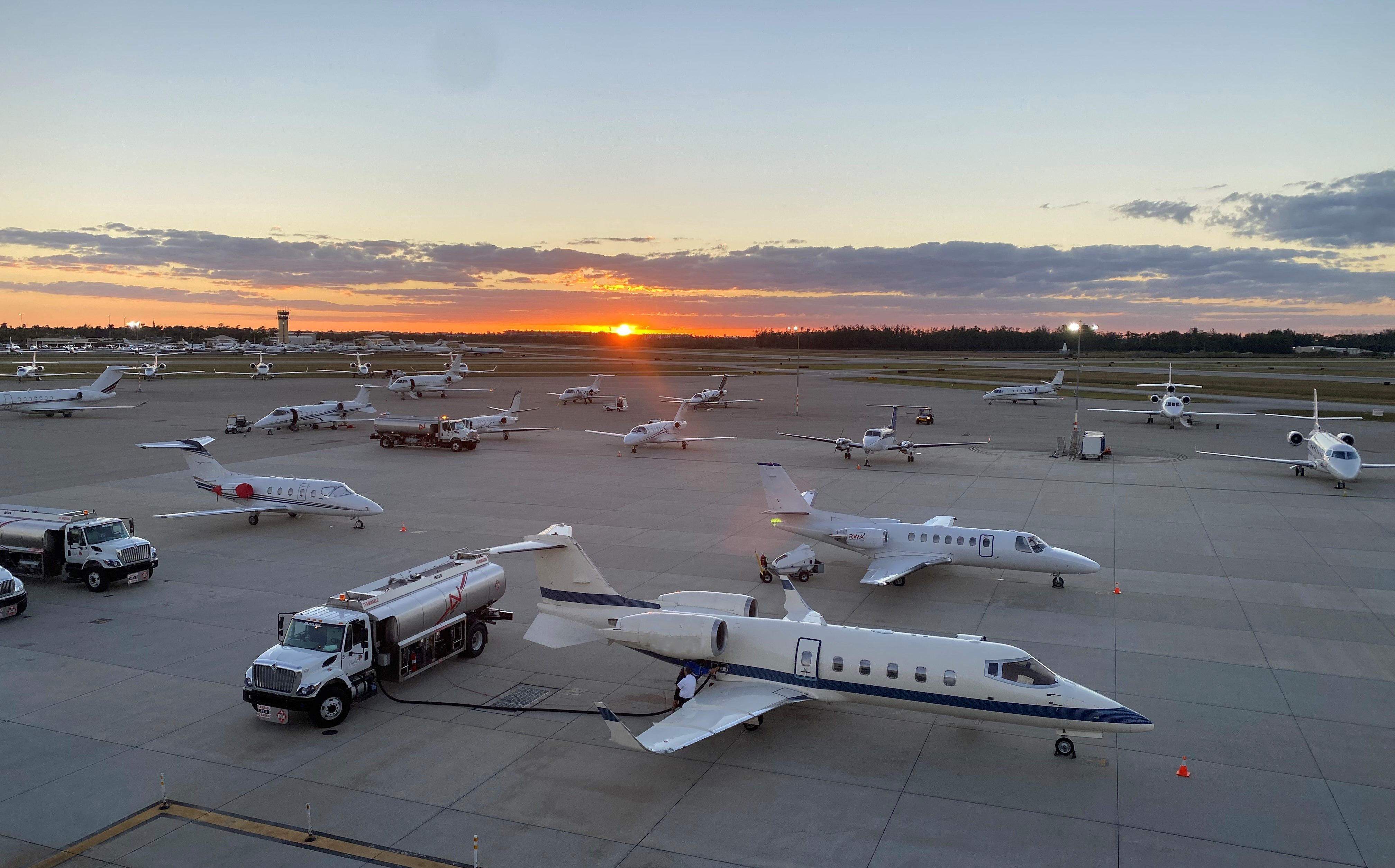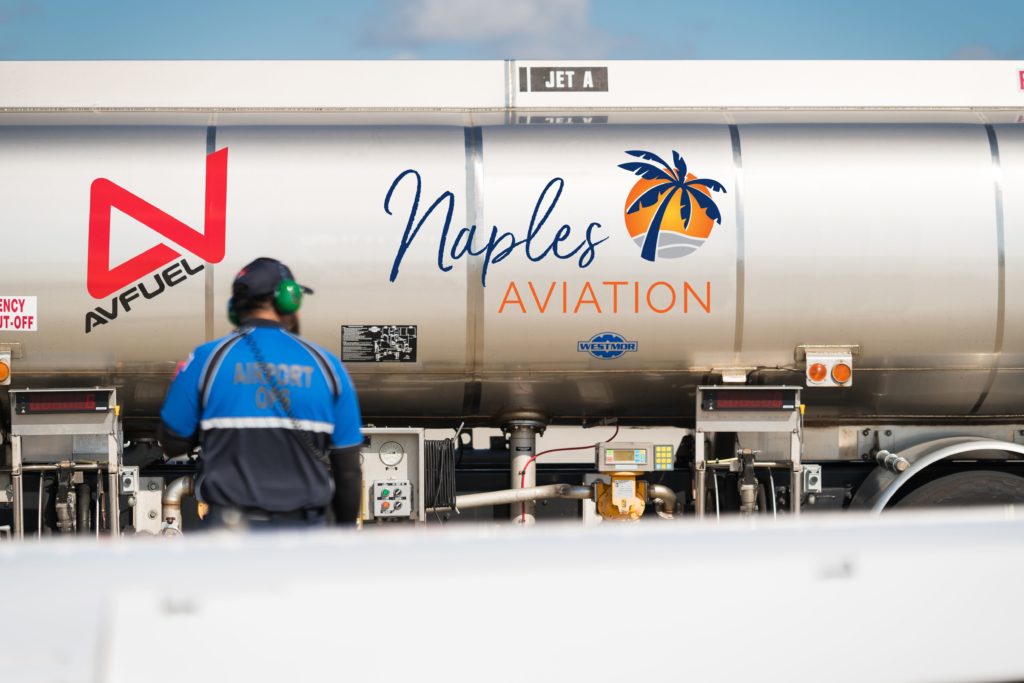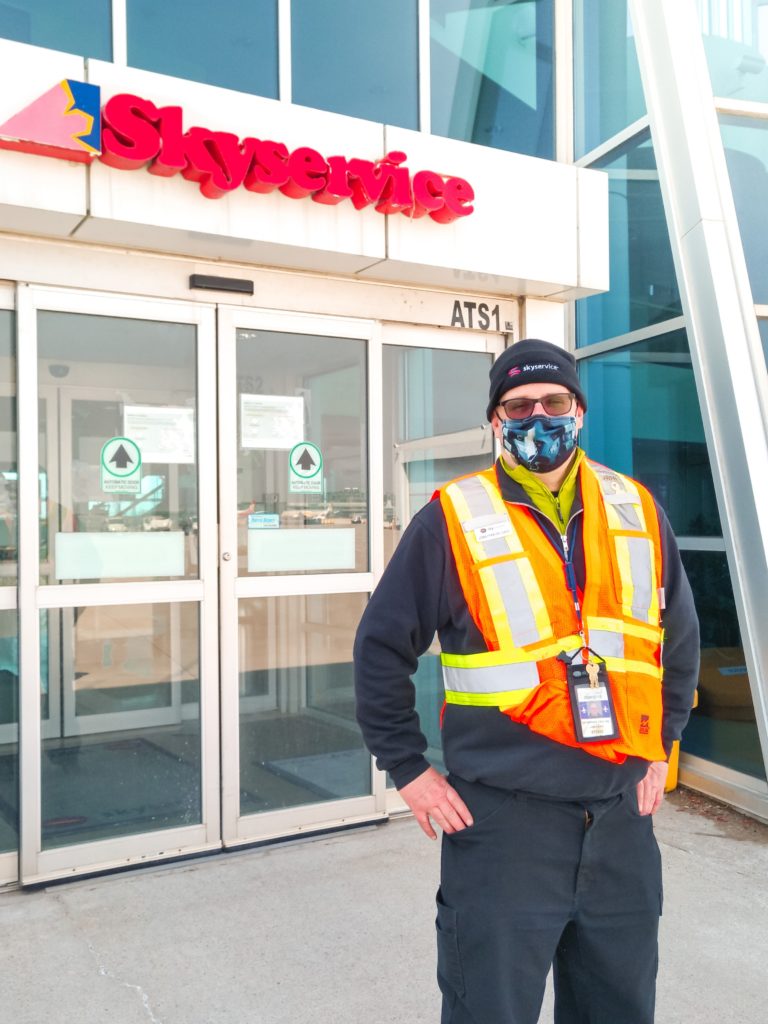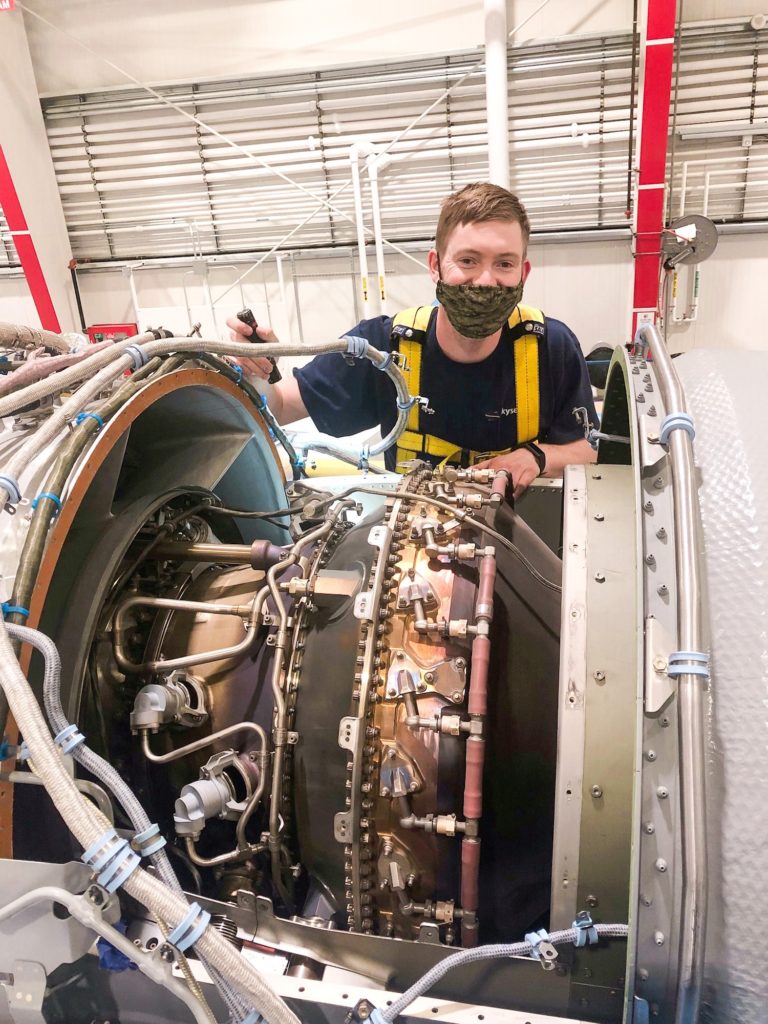Estimated reading time 16 minutes, 50 seconds.
When the COVID-19 pandemic hit in March 2020, the effect on aviation fixed-base operators (FBOs) was immediate and severe. Almost overnight, people were told to stay home and all non-essential travel ceased.
At the Naples Airport in Naples, Florida, the airport-run FBO saw a precipitous decline in fuel sales: from over a million gallons in February 2020 to a mere 350,000 gallons two months later.

Zachary Burch, communications manager for the Naples Airport, said that when the state’s “Safer at Home” order went into effect on April 3, 2020, it prompted many changes in the area. As one of the busiest GA-only airports in the U.S. and the home of about 400 aircraft, Naples saw a 70 percent decline in operations and fuel sales. But instead of shrinking back during the pandemic, the Naples Airport Authority believed a strong recovery would come – and it moved to be ready.
“Our leadership really anticipated the recovery and that we’d still be a destination people would want to go to,” Burch told Skies. “We anticipated the growth and purchased additional fuel trucks and added staff to accommodate it. We wanted to be ready when the increases did come.”
And come they did.
By May 2020, when the Safer at Home order ended and Florida began to gradually re-open, airport business began to recover.
“The summer is slower for us anyway. But as we got close to fall, our numbers started to rebound considerably. Every month since then, we’ve sold more fuel than we did the previous year, by quite a bit,” reported Burch.
Before 2021, the Naples Airport had only surpassed monthly fuel sales of one million gallons six times – but for the last five months in a row leading up to April 2021, they’ve easily beat that target. In January 2021, the facility recorded an all-time single-day record, with just under 110,000 gallons of fuel sold.

“As restrictions linger in other parts of the country, we’ve seen more people wanting to come to Florida. We’ve lost most, if not all, of our business travel over the last year, but our transient travel is really what has taken up the slack. Charter and fractional travel has really increased for us, to the point where it’s made up for the loss in business travel, and at times even exceeded it.”
Burch believes this increase is due to a new customer segment that felt uncomfortable with commercial travel during the pandemic and instead chose to fly privately. He said Naples Airport is trying to forecast how much of that business will remain post-pandemic.
“It’s a tricky question. We expect business travel will recover, not quickly, as vaccinations increase and people feel more comfortable traveling. For the folks who are the new private travelers, it’s hard to say how many will return to commercial aviation. We’re hopeful they will want to continue flying privately.”
He added that the city of Naples itself is booming right now, with real estate prices soaring from “a tremendous amount of people who have said they are just relocating permanently.”
Face masks are still required indoors at the airport, but staff have largely returned to the office with a number of precautions still in place. These include increased cleaning and sterilization, PPE, reduced touchpoints for customers, and newly designated staff facilities to permit physical distancing. In addition, Burch said committees and teams meet via Zoom, simply connecting from their individual offices to maintain separation. Fortunately, the airport has had very few cases of COVID-19.
As he recalled the past year, Burch credited the Naples Airport team for its flexibility in adopting new procedures and processes practically overnight.
“Everything changed in one fell swoop. We had to change everything, from how we cleaned to how we interacted with customers, while still providing the same level of friendly, professional service. We had to find new ways of doing things with technology and with our community and employees.”

In Florida, everyone over age 16 is currently eligible for the COVID-19 vaccine, and Burch hopes “normal” will return soon.
While the recovery at Naples Airport is well underway, it’s a different story in places with more stringent government restrictions.
North of the U.S. border, Canada’s Skyservice Business Aviation is navigating its way through pandemic-related challenges in a far more cautious regulatory environment. With locations in Toronto, Calgary, Muskoka, Montreal, and Ottawa, Skyservice provides a full range of FBO services, including fuel, hangar storage, aircraft maintenance, and crew/passenger services.
Skyservice moved quickly to implement pandemic precautions. These included elevated cleaning standards, sanitizing hypochlorous acid fogging, PPE kits for passengers and flight crews, reduced customer touchpoints, and stringent procedures to perform required COVID-19 testing and passenger health screening.
“We’ve had to be very agile and flexible without jeopardizing operational excellence,” said Benjamin J. Murray, Skyservice president and CEO. “It’s been somewhat unpredictable in terms of arrivals and departures, but we’ve kept our facilities open 24/7 and delivered the same level of service our customers have come to expect. Even though it’s been less busy, we haven’t stopped looking at ways to become more efficient.”
The Canada-U.S. land border has been closed to non-essential travel since the onset of the pandemic in March 2020. Likewise, fewer private flights have ventured south, as international travel has slowed and movements have been discouraged by quarantine measures.
Murray said Skyservice is transitioning through the pandemic better than most in Canada.

“Fortunately, we’ve been able to preserve the jobs and customers that have allowed us to stay focused on creating a stronger business as we emerge out of the pandemic,” he told Skies. “But until we get the borders opened up, we will continue to feel the pressure of this pandemic.”
Currently, Skyservice employees continue to work from home with the exception of select operations personnel, as Canada battles an escalating third wave of COVID-19 infections. Murray believes Canadian business aviation – which has been subjected to much heavier pandemic restrictions than in the U.S. – will be in a holding pattern until later this summer. The challenge then, he said, will be pivoting back to a centralized workplace in a seamless way.
Still, there have been opportunities for growth during the pandemic. While itinerant traffic is down, Skyservice has retained its tenants and has very little hangar availability across the chain. Maintenance and aircraft sales have been busy, too.
“While flying activity is slower, owners have reinvested in airplanes and pushed maintenance forward, including upgrades and improvements,” said Murray. “Also, we are seeing the market expand. The value of flying privately is being realized.”
As more people investigate private air travel, the company has seen a spike in charter activity and aircraft sales.
“We’ve seen a lot of inquiries, quotes, a lot of shopping.”
Murray said that while Skyservice is supportive of the federal and provincial governments’ efforts to protect citizens, it’s still been a challenge.
“Being able to pivot operations to adhere to new mandates and share updates in real time to clients and other stakeholders, while still running a business, takes an enormous amount of effort,” he said.
He’d like to see people get vaccinated so life, and business, can return – even though he believes there will be more long-term changes coming out of the pandemic.
One change he’d really like to see is a shift in the perception about business aircraft.

“One of the things we need to emphasize as an industry is that it’s not just about high net worth people,” he emphasized. “It’s a business utility vehicle that takes people to places they normally couldn’t access; connecting smaller communities to major hubs for industry, trade, and medical care. With greater awareness and support, I think Canada could be an epicenter for business aviation.”
Murray said the industry needs buy-in from all levels of government, and a realization of the sector’s economic contributions.
He also believes that customers flying privately should not be subjected to the same quarantine and testing regulations as those flying on commercial carriers. Presently, all international passengers – regardless of the aircraft they are traveling on – must provide proof of a negative COVID test administered within 72 hours of their scheduled departure for Canada. Upon arrival, they must be tested again prior to leaving the airport and proceed directly to the approved quarantine hotel for a three-night stay or until test results have been received, transmitted to the Public Health Agency of Canada (PHAC), and confirmed negative. Passengers are responsible for the cost of a mandatory three-night hotel stay and any applicable testing fees, although government tests administered upon arrival are free of charge.
Currently, those arriving on a private aircraft in Calgary must proceed to the main terminal for COVID testing. Murray said that process exposes them to many more people, at a time when they have just cut their risk through traveling privately.
In Toronto and Montreal, Skyservice provides onsite testing for arriving international passengers at its FBO facilities, with results available in less than an hour. However, passengers must still proceed directly to an approved quarantine hotel pending receipt and transmission of their test results to PHAC.
While vaccines are promising, the roll-out in Canada has been slow.
“Vaccinations are the key to returning everyone back to a more normal level of activity and business function,” noted Murray.
While it’s been an unprecedented year for Skyservice, Murray said the downtime has been surprisingly productive from a business planning perspective.
“Over 35 years, Skyservice has grown to become the market leader in Canada. Nobody has had time to slow down and figure out where we want to go over the next 35 years,” he explained.
“We’ve taken this time to reduce costs and invest heavily in technology and digitization. Even though we are the market leader, we won’t retract and preserve during this time. Instead, we are investing and we will emerge in the most aggressive way you’ve ever seen Skyservice operate before.”
Despite varying levels of government regulation, both the Naples Airport FBO and the Skyservice chain used pandemic downtime as an opportunity to plan and prepare. While Naples has already seen an impressive recovery, Skyservice is still waiting. But when restrictions ease and borders are opened, Murray said the company will be ready.
“We’re going to come out of the pandemic strong and capture the pent-up demand in travel with a more robust client service offering,” he concluded.








